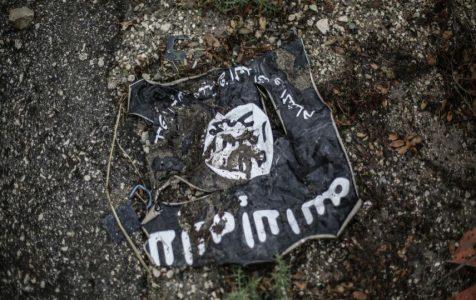
Swedish authorities are looking forward to welcoming 230 ISIS returnees and their children
Around 150 jihadists and their wives, as well as 80 children, are expected to return ‘home’ to Sweden from the defeated ‘caliphate’ once controlled by the notorious terrorist group ISIS. While many stressed that giving ‘carte blanche’ to the returnees is dangerous, only a single municipality has flatly refused to welcome them back so far.
A total of 35 municipalities are preparing to receive up to 230 returnees from the Middle Eastern areas formerly controlled by Daesh*, the newspaper Dagens Nyheter reported.
The list of possible returnees from Syria and Iraq includes 150 jihadists and their wives, as well as 80 children.
On 24 April, the Centre for Prevention of Violent Extremism (CVE) will hold a discussion with the municipalities on how the reception should proceed. According to the organisation, it is important to have a crime prevention focus. The goal is thus to achieve a clear picture of the situation and then adjust the efforts accordingly.
“It can be about the support and assistance that the municipalities can provide. But also the healthcare system must participate, including in the form of psychiatry,” CVE head Jonas Trolle told Dagens Nyheter.
While Trolle emphasised the importance of prosecuting those guilty of terrorist offences and war crimes, this may prove a hard task to accomplish due to the burden of proof. So far, Sweden has received dozens of returnees, but only a single case ended in trial and conviction.
Trolle stressed that former Daesh men, women and even children may be ideologically motivated. Their extremist beliefs may result in simpler forms of terrorist attacks, but also in the rapid radicalisation of their environments.
“It would be very dangerous if they come home and feel that they have carte blanche; it can fuel further radicalisation in all different types of extremist environments,”Trolle explained.
On Friday, CVE held a round-table conversation with Save the Children, children’s psychiatrists and representatives of the social services to specifically discuss the treatment strategies that can be used to assist the returning children.
“It is incredibly important that we gather all relevant actors and clarify the needs that exist,” Jonas Trolle explained.
Previously, the fate of returning Daesh jihadists and their offspring, born in the Middle East, spurred polarising reactions in Sweden.
Imam Kashif Virk of the Ahmadiyya branch of Islam argued that Daesh terrorists deserve a “second chance” and need help. In his opinion piece for Dagens Samhälle, he also slammed Swedish politicians for not doing enough to help the minorities, citing “frustration” as the foremost reason why people join extremist groups like ISIS.
By contrast, Sweden’s leading terrorism researcher Magnus Ranstorp of the National Defence College argued that Sweden should avoid actively helping jihadi defectors at all costs. According to him, they are the most dangerous kind and the most hardened variety. Ranstorp also slammed the Swedish authorities, but for reacting too weakly and too late. According to him, the legislation was lagging behind, and enabled people who have committed atrocities to walk free.
Social Democrat Justice Minister Morgan Johansson, in turn, clamoured for a “national defector program” to handle three forms of extremism: white power circles, independent activists and violent Islamists.
So far, Staffanstorp Municipality has been Sweden’s first and only community to completely reject returning jihadists, which the board chairman Christian Sonesson described as “standing on the victims’ side”.
Source: Sputnik





